Penny Park – founder, first Executive Director, and guiding light of the SMCC – passed away this past weekend. Penny was one of Canada’s leading science journalists, a passionate defender of free speech for both journalists and scientists, and a proud promoter of Canadian research. Penny began her science journalism journey in 1980 at […]
Category: News tip
Peter Calamai, 1943–2019
Peter Calamai, the founder, along with Penny Park (who died last month) of the Science Media Centre of Canada, died yesterday morning at his home in Stratford. Peter was a journalist’s journalist: curmudgeonly, dogged, determined, demanding. He was an old-fashioned, ink-stained newshound. He began as a dashing young foreign correspondent for the old Southam News in […]
New tool measures birds’ complex flight dynamics
Published October 24, 2018 17:01 EDT (Brief from Royal Society) A portable stereo-imaging system and algorithms allowed researchers to measure three-dimensional flight trajectories and time-resolved wingbeat frequencies of freely flying birds. When applied to jackdaws and rooks flying alone and in large flocks, the resulting data suggest that flocking, unlike V-formation flight, is energetically costly. Canadian […]
Birds with big brains are more likely to explore new habitats 
Scientists have long questioned whether there is any correlation between brain size and cognitive ability in various animal species. One theory often explored in this field is the cognitive buffer hypothesis, which explains bigger brain size by the adaptive benefits to respond quickly to sudden, rapid changes in the environment. A new study tests out […]
Organ donations in Ontario increased significantly over past 10 years after policy change 
Organ donations have increased by 57% in Ontario after a new donation policy was implemented in 2006. The new policy allowed for donation of organs after circulatory determination of death (DCD), replacing the old rule that called for donations only after neurologic determination of death, or brain death, has been established. DCD donations have expanded […]
Biodiversity in shallow Arctic lakes 
Shallow Arctic lakes that remain unfrozen throughout the year contain more diverse biofilms than lakes that freeze up for a period of time, a new study has found. Researchers analyzed the genetic material of biofilm—which is a group of microorganisms that stick to one another, forming a so-called “microbial mat” on the surface of a lake—in […]
Underground fungi network helps forests spread farther 
Forests that are facing the dangers of disappearing from the effects of climate change might have an unlikely ally: ancient underground fungi. A recently published paper puts forward a theory called the “paleosymbiosis hypothesis,” which states that tree roots can activate an underground fungal network that has laid dormant for millennia. These fungi could helping […]
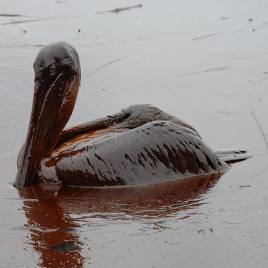
A drop of oil slows down seabird flight 
Even the smallest amount of oil can disrupt the delicate mechanisms behind the flight of seabirds, a new study suggests. Crude oil on the feathers of waterfowl significantly increase the amount of energy the birds have to spend in order to fly, making the birds’ wings and bodies less aerodynamic. Researchers trained wild western sandpipers […]
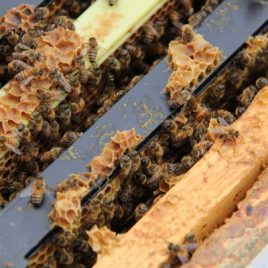
Neonic pesticides increase mortality rates among worker and queen honey bees 
First-ever study using realistic field doses of neonicotinoid pesticides has confirmed their deadly effects on honey bee populations. Researchers have quantified the length and magnitude of pesticide exposure in Canada’s cornfields, and mimicked the exposure in a lab setting. They found that the lifespans of worker and queen honey bees are cut by 23% after […]
How alternative medicine practitioners may be spreading the anti-vaccination sentiment 
Tighter regulations of complementary and alternative medicine (CAM) providers are necessary to stop the spread of misinformation about vaccines, according to a new paper. Researchers have examined 330 websites of CAM providers in Alberta and BC, to evaluate how these practitioners may be contributing to the anti-vaccination sentiment among their patients. Their findings showed that […]
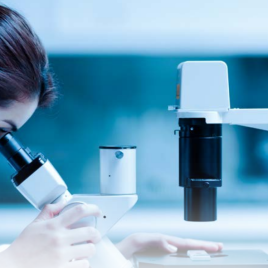
Fundamental research is failing in Canada: survey 
The number of scientists investigating basic-science questions in Canada has dropped by nearly 20%, a new survey reports. Reasons for the drop include decreased funding and institutional preference for applied research over fundamental research. Over 1,300 Canadian researchers took part in an online survey that asked them to share their views on the state of […]
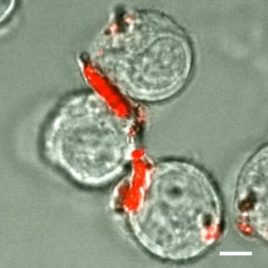
Improving the cellular backpack
Medicine can be delivered to specific parts of the body by fitting it inside a “backpack” and attaching it to white blood cells. This targeted drug delivery means other tissues of the body aren’t affected, and side effects are limited. Original research presented at a meeting of the American Chemical Society on March 17, 2015.
The Brain Prize – Congratulations Dr. Collingridge
Dr. Graham Collingridge, Chair of the Department of Physiology, University of Toronto, has been awarded The Brain Prize, widely known as the “Nobel of neuroscience”, for his research on the cellular mechanisms of learning and memory. The million euro prize is awarded by the Grete Lundbeck European Brain Research Foundation in Denmark. Dr. Collingridge shares […]
The role of science in Canadian policy
The Science Integrity Project, which aims to make evidence-based decision-making a high priority for government at all levels, has released four principles for improving policy decisions using the best available evidence. The principles were developed through the collective wisdom of 75 leaders — in science, indigenous knowledge, public policy, civil society, and governance. The project […]
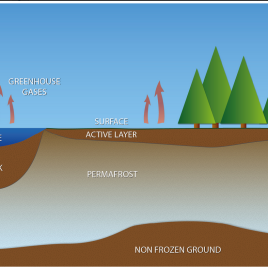
First global permafrost database launch
The first online database on global permafrost is freely available to the public, serving as an early warning system for decision-makers around the world, as well as providing standardized permafrost measurements for the first time. The database, from the Global Terrestrial Network for Permafrost, has brought together scientists from 25 countries and who have drilled over 1000 […]
Obstetricians and family doctors have equal outcomes for low-risk births
During low risk births, the risk of newborn death and maternal complications is similar for deliveries performed by family physicians and those performed by obstetricians, according to a new study. The authors note that these findings should only be applied to low-risk deliveries that could be safely performed by either a generalist or a specialist, […]
